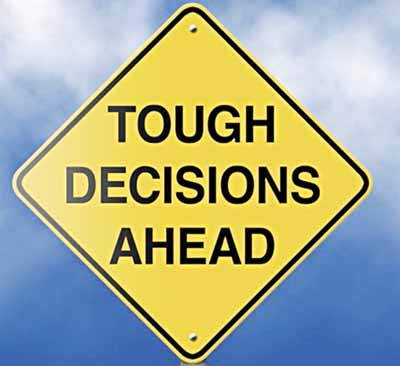However, I would argue that these past presidencies bequeathed not only a large economy, but also, especially for the Jonathan presidency, a structurally transformed economy towards growth in agriculture (making the sector business oriented), automotive industry (rolling out cars assembled in Nigeria) and ICT development (creating deeper broadband penetration) as well as laying the groundwork for infrastructure development in transportation and power.
As presented in the current state assessment of the economy at the Summit, we are once again at a crossroads, the fragility of our macroeconomic environment is clear for all to see because there have been many setbacks in the past year: oil prices have dipped from $94 per barrel to $46 per barrel, the growth rate of our GDP dropped from 6.25 per cent to 2.35 per cent, the exchange rate has moved from $1:N168 to $1:N200, inflation moved up from 8.3per cent to 9.3 per cent, unemployment rate increased from 6.4 per cent to 8.2 per cent, foreign reserves dropped from $38 billion to $30 billion, the Monetary Policy Rate increased from 12 per cent to 13 per cent, growth in the manufacturing sector dropped from 16 per cent to -3.82 per cent, disbursements from the Federation Account Allocation Committee dropped from N604 billion to N485 billion and the value of trading at the Nigerian Stock Exchange went down from N13.6 trillion to N10.3 trillion.
This is not a time for irrational exuberance, but one to take advantage of a series of events and moments that could help shape a better future. We must welcome a number of new starts and fresh opportunities especially with the elections that have brought new leadership and widespread optimism. We must grasp the opportunities presented by this new beginning to work together and capitalise on any opportunity as a force for good. It is one of the tough choices before us.
The work of the Buhari presidency is therefore well cut out: to make Nigeria’s economy more competitive and economic growth more inclusive. To do that also requires tough choices. The first step should be to set a target for next year’s Global Competitiveness Index and subsequent years, then put in place a set of specific actions that are required to achieve the set targets.
In doing this, the government will have to focus on just a few measures within the next four years and do them well: maintain a sound macroeconomic environment, reinvent public institutions to be efficient and effective, make quality investments in social services such as education and health, make value investments in infrastructure development in addition to unlocking the binding constraints to the delivery of successful PPPs, implement a viable skills development framework to harness our large human capital base, create a policy framework that will motivate businesses to make social impact investments, encourage a business climate with less cumbersome regulations for ease of doing business and encourage the growth of small businesses. The government also needs to make targeted investments in innovation, research and development and promote non-oil exports while ensuring that the country explores alternative financing for our JV cash call funding in the petroleum sector.
Other specific actions proposed at the 21st Nigerian Economic Summit are to increase budgetary allocation to education to 20%; increase investment in vocational education through technical college and vocational centres in each state of the federation; provide tax incentives and government-funded research grants to local manufacturers of pharmaceutical products; convert 1,000 hospital beds in 5 teaching hospitals into world-class private wings with funding, expertise and management by world-class healthcare companies; privatize/concession the railways (to focus on freight), major highways, major airports, refineries, pipelines and depots; privatize the power transmission network; increase power generation to achieve 20,000 MW and totally reform the petroleum subsidy regime.
For me and rather surprisingly, these are relatively easy to do. The hard part is overcoming the challenge in taking key decisions that, in the past, have been convoluted by political and other prebendal interests. The president needs an economic emergency room, a shock trauma unit that will immediately administer the tough prescriptions required to achieve competitiveness, inclusive growth and sustainability in the long run. His personnel recruitments into the administration should be driven by capacity and loyalty to the advancement of progress. Therein lies his tough choices too.
I think of the seminal Wall Street Journal’s columnist, Peggy Noonan, as I conclude like her that “someday history will write of this era, and to history our biggest failing will be the things we did not do. History will be hard on us for that.”
CONCLUDED
Nnanna Ude’s archive at www.nnannaude.com, follow him on Twitter @nnannaude or subscribe to his updates on Facebook.




